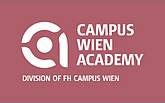Inhalt
Cities as Organizations: Interplay of Strategy and Structure, Smart City Governance and Stakeholder Management, New Ways of Collaboration and Impact
Promoters of Change: The Role of Project Champions, Promoters, Innovation Brokers & Change Agents and Opinion Leaders in Urban Context
A Critical Review of the Smart City Terminology
Strategies for City Transformation. Smart City Vienna Framework in Comparison with International Benchmarks
Measuring & Monitoring Progress: Metrics, Indicators, Rankings
Innovative Financing (Guest Speaker)
Lernergebnisse
Students understand potentials and pitfalls of holistic City transformation processes and identify new strategic options their area of occupation
Students classify diverse policy frameworks and Smart City approaches and are able to compare international benchmarks critically
Students are able to re-assess their domestic frameworks (policies and strategies) critically as a prerequisite to identify innovative courses of action
Lehrmethode
Lectureswith interactive formats, group works, break-out sessions and discussion
Prüfungsmethode
Immanente Leistungsüberprüfung
Literatur
Rodríguez-Bolívar, Manuel Pedro (2015): Transforming City Governments for Successful Smart Cities, Springer.
Longo, Francesco (2012): Strategic change management in the public sector. An EFMD European case book
Schein, Edgar H. (1996): Three Cultures of Management. The Key to Organizational Learning, Sloan Management Review, Fall 1996.
Felin, T, Zenger. T (2014): Closed or Open Innovation: Problem Solving and the Governance Choice. Research Policy 43 (5).
Rogers, Everett (2003): Diffusion of Innovation. 5th Edition. Chapter 9 The Change Agent, pp 365 – 402.
Glasmeier, Amy, Christopherson, Susan (2015): Thinking about Smart Cities, in: Cambridge Journal of Regions, Economy and Society, No 8, p. 3-12.
Pereira, Gabriela Viale et al. (2018): Smart Governance in the Context of Smart Cities. A Literature Review, in: Information Polity 23(2) May.
Albino, Vito et al. (2015): Smart Cities: Definitions, Dimensions, Performance, and Initiatives, in: Journal of Urban Technology.
City of Vienna (2019): Smart City Framework Strategy. 2019-2050
City of Vienna (2017): Smart City Monitoring Report
Unterrichtssprache
Englisch











